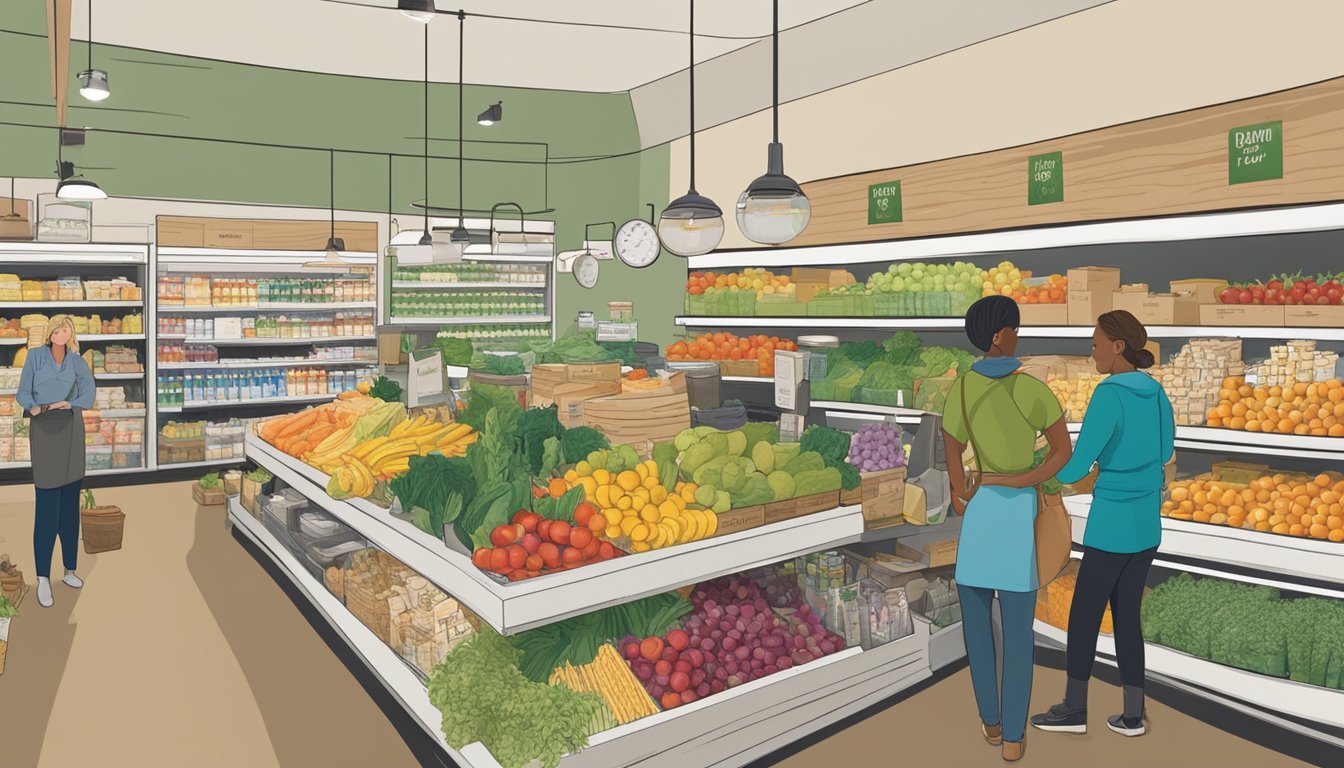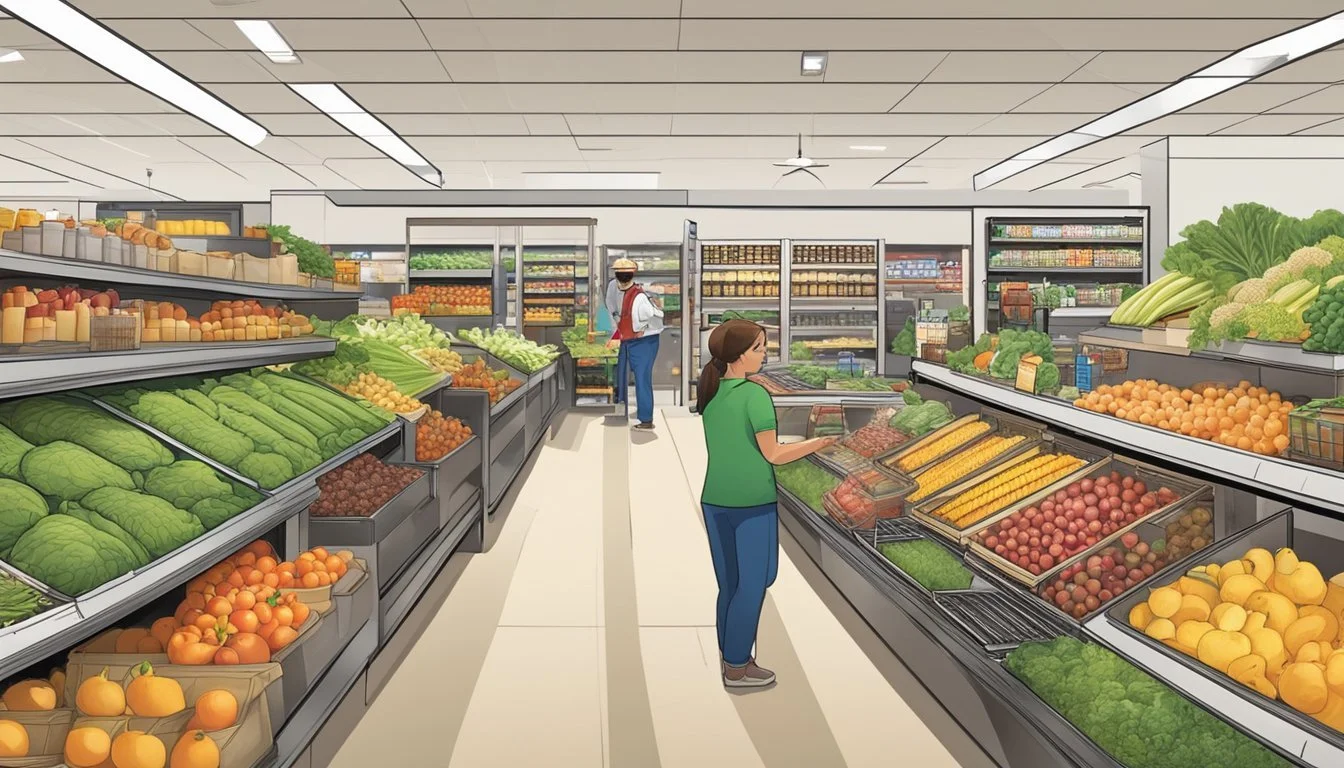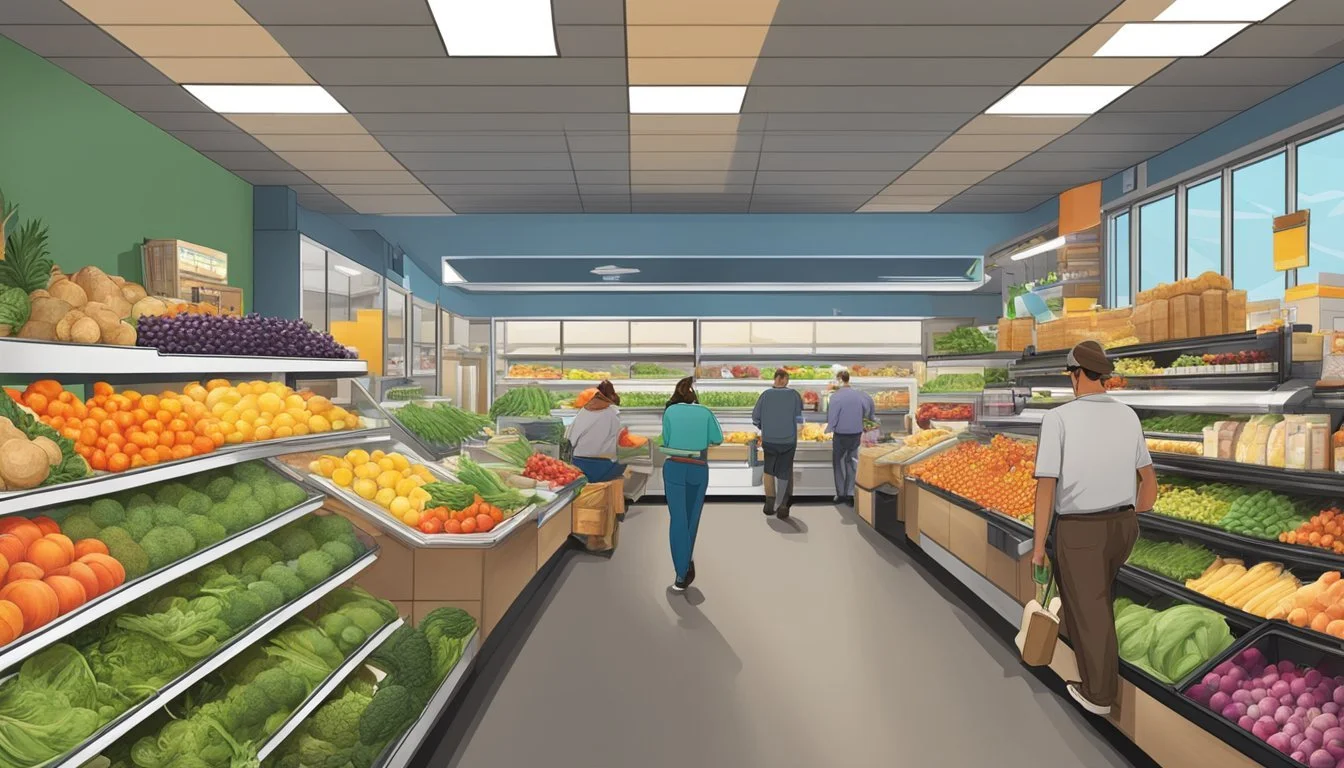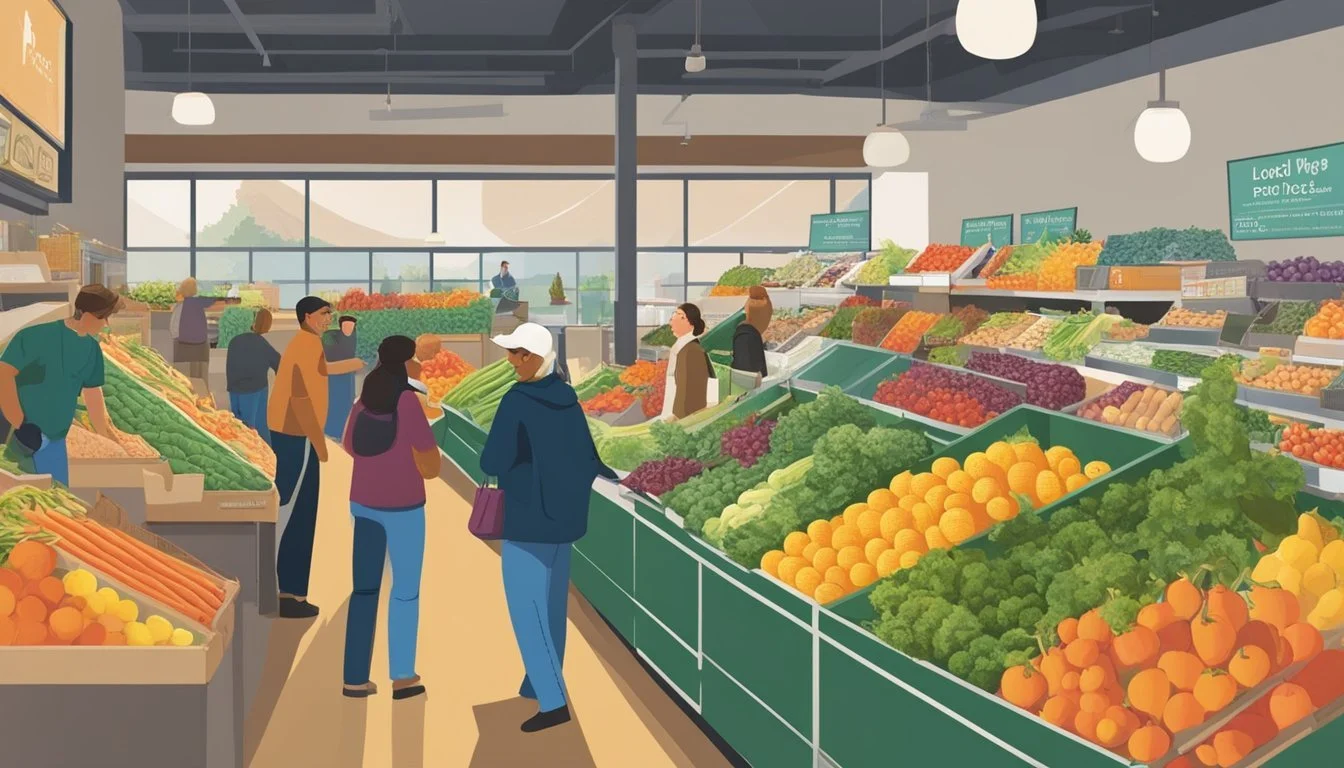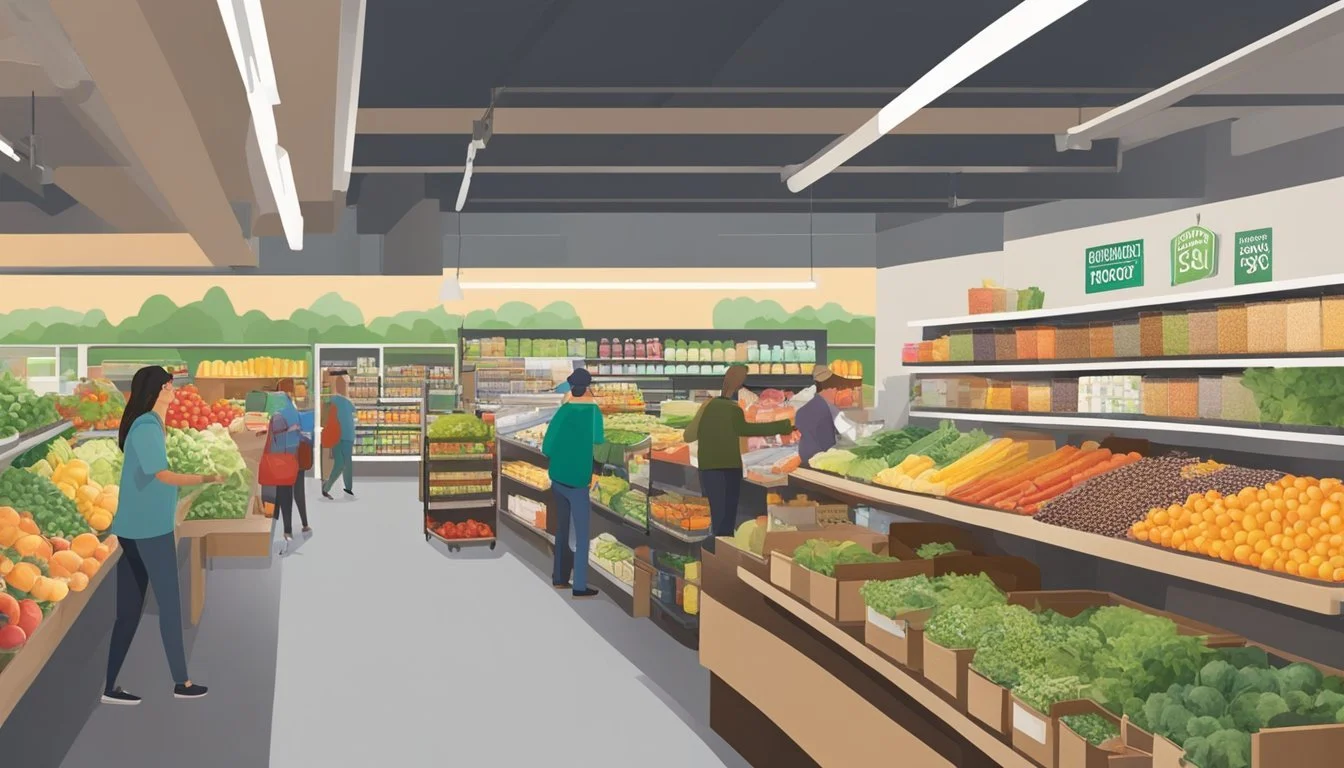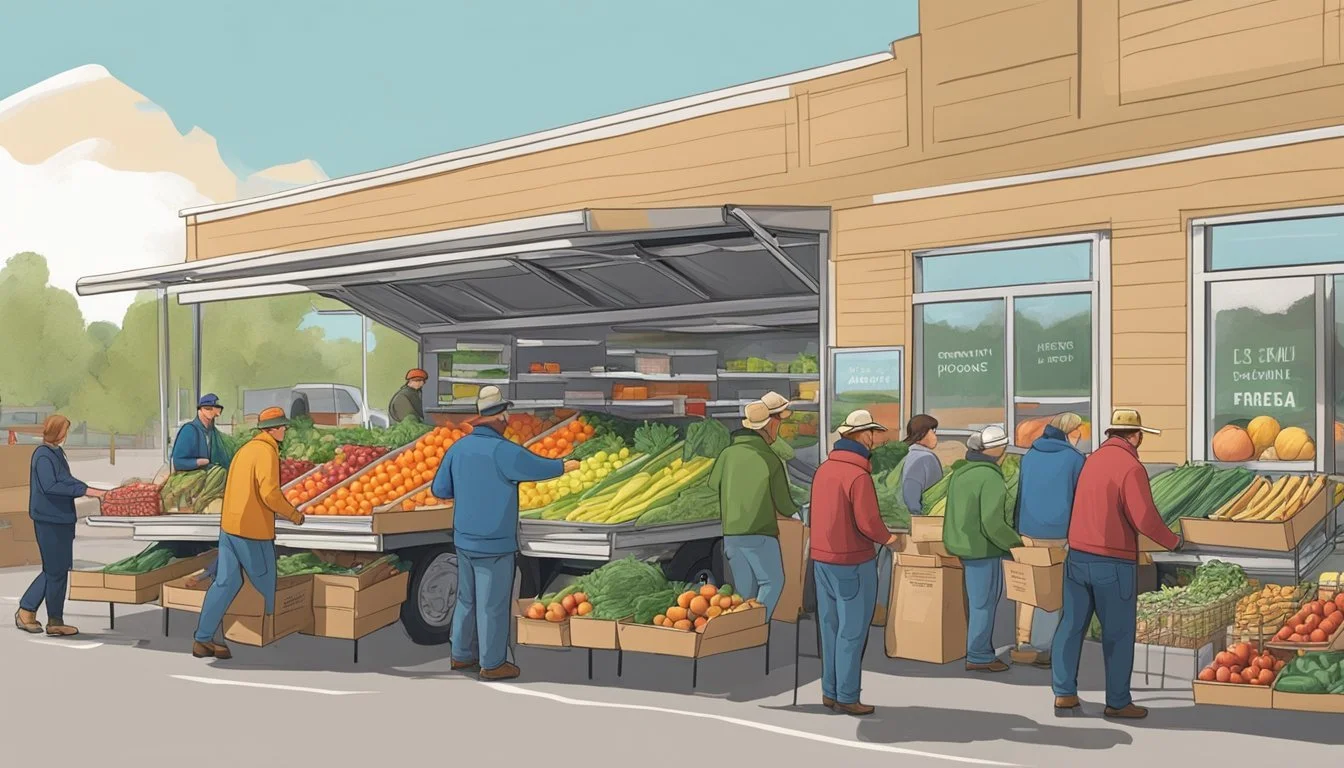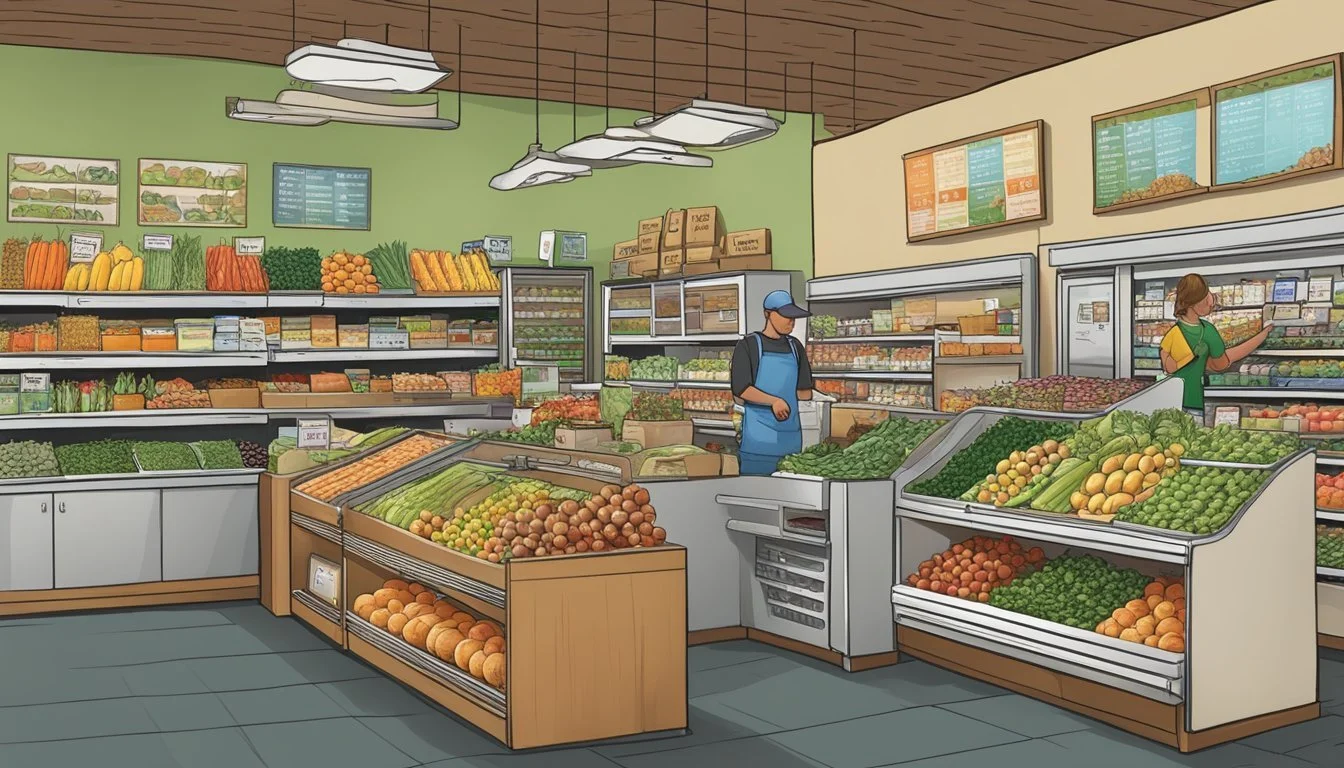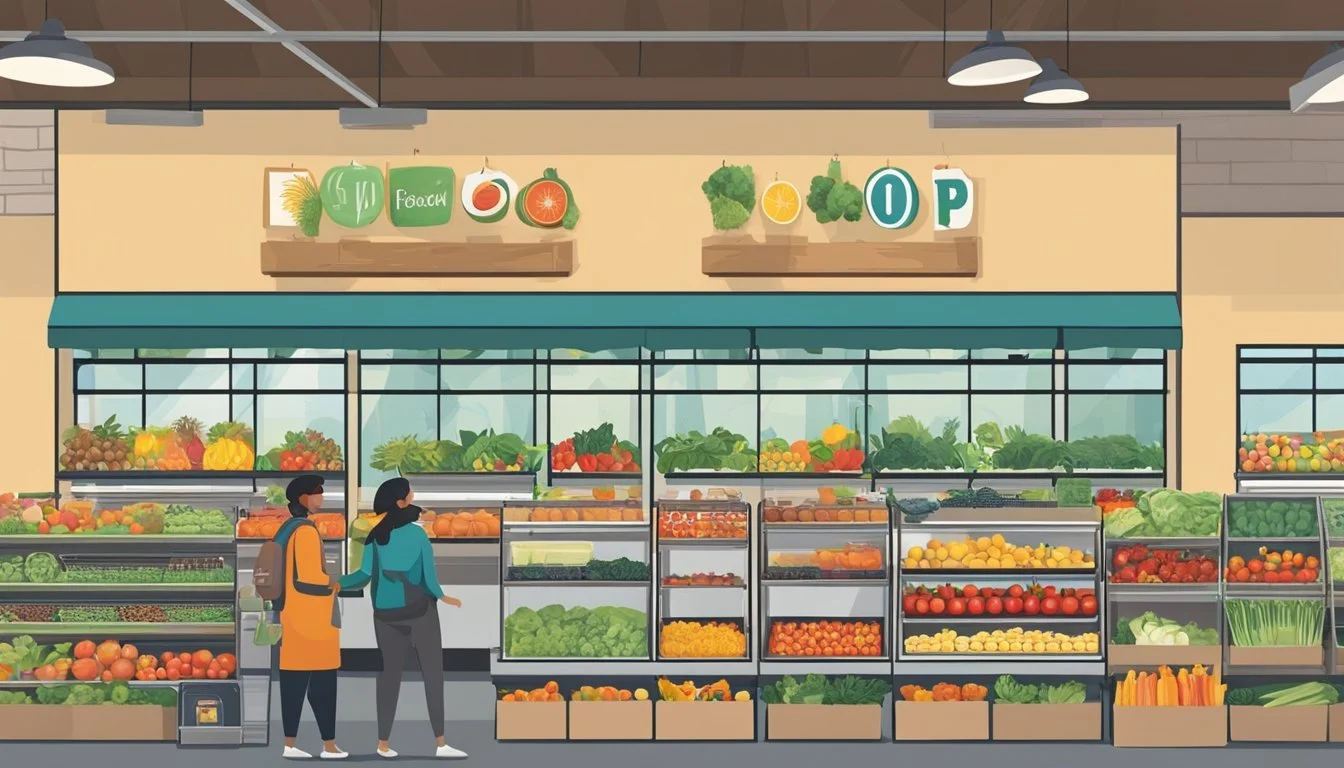Guide to Food Co-Ops in West Valley City, UT
Your Local Source for Community Sustenance
Food co-ops in West Valley City, UT, offer residents the opportunity to access fresh, locally-sourced produce and meats while supporting their community. These cooperative grocery entities operate with a distinct motive; they prioritize sustainability and the welfare of local farmers and producers. They are a testament to the city's investment in healthier food practices and economic models that benefit both consumers and suppliers.
Residents of West Valley City looking for a more community-centric shopping experience have options such as the Liberty Heights Fresh and the Food and Meat Co-op Utah. These co-ops provide not only quality food but also a unique chance to engage with the local food economy. By participating in a co-op, community members contribute directly to the success of local businesses and farms, echoing the cooperative spirit that underpins these institutions.
Understanding how these co-ops function is key for those interested in becoming a part of them. Food and Meat Co-op Utah, for instance, allows individuals to purchase in bulk, taking advantage of group buying prices, and typically operates with a pick-up schedule that responds to the needs of the surrounding counties. This logistical setup ensures the operations align with both the producers' and consumers' schedules, making fresh food accessible while also supporting the underlying cooperative ethos.
What Is a Food Co-Op?
Food co-ops are community-governed marketplaces offering food and goods. Ownership and profits are shared among its member-owners, not external investors, and they emphasize community benefit.
History of Co-Ops
The history of food co-operatives extends back to the 19th century, with the Rochdale Pioneers in England credited for developing the modern co-op model in 1844. This structure was established as a way for people to access quality food without exploitative pricing. It spread globally, with communities adapting the model to their specific needs.
Co-Op Principles
Food co-ops adhere to a set of internationally recognized principles:
Voluntary and Open Membership: Co-ops are open to all who are willing to accept the responsibilities of membership without discrimination.
Democratic Member Control: Each member has one vote, contributing to decisions on co-op policy and direction.
Members' Economic Participation: Members contribute equitably to capital and control it democratically.
Autonomy and Independence: Co-ops are self-help organizations controlled by their members.
Education, Training, and Information: Co-ops educate members and the public about the nature and benefits of cooperation.
Cooperation Among Cooperatives: Co-ops serve members most effectively by working together.
Concern for Community: Co-ops work for sustainable development of their communities through policies approved by the members.
These principles ensure that food co-ops remain focused on community nourishment and member needs.
Benefits of Joining a Food Co-Op
Joining a food co-op in West Valley City, UT, offers members economic advantages, access to high-quality and fresh foods, and the opportunity to positively impact the environment.
Economic Advantages
By becoming a member of a food co-op, individuals support a business model that circulates money within their local economy. Food co-ops commonly offer member savings through discounts and special deals. Members often have a say in the co-op's governance, influencing how profits are reinvested locally.
Member savings: Special pricing and member-only deals
Local economy: Profits are channeled back into community development
Health and Quality
Food co-ops are known for stocking natural and organic produce that meets high-quality standards. These establishments prioritize the health of their shoppers by providing options that are often fresher and more nutrient-dense than those found at conventional grocery stores.
Fresh produce: Prioritized access to seasonal and locally-sourced items
Quality standards: Rigorous selection process to ensure product excellence
Environmental Impact
Food co-ops in West Valley City, UT, focus on sustainable practices that reduce environmental footprints. They often support local growers who use environmentally friendly techniques, resulting in less transportation and, consequently, a lower carbon footprint.
Sustainable practices: Support for local agriculture using eco-friendly methods
Reduced carbon footprint: Minimal transportation required for local produce
Exploring West Valley City's Food Co-Ops
In West Valley City, UT, food co-ops serve as community-focused hubs where residents can access local, organic produce and a variety of other products. These co-operatives emphasize sustainable practices and food justice, making them integral parts of the local food system.
Location Overview
West Valley City houses food co-ops such as Liberty Heights Fresh, which is notable for offering local, organic food sourced from the region. These co-ops are strategically located to serve residents with a commitment to community and sustainability. Accessibility is key to their operation, ensuring members and non-members alike can benefit from the services they provide.
Membership Details
Membership in West Valley City's food co-ops typically includes benefits like discounts on products, a say in business operations, and the satisfaction of supporting local agriculture and businesses. To become a member, individuals usually pay a fee which contributes to the co-op's growth and development. Active participation is encouraged, creating a sense of ownership and community among members.
Product Range
Produce: Shoppers can find a selection of fresh, organic fruits and vegetables, highlighting the co-ops' commitment to health and wellness.
Meat: Options for locally-sourced meats are available for those interested in sustainable animal husbandry practices.
Tea: A curated selection of teas offers both local blends and international flavors, catering to a range of tastes.
The product range extends beyond these categories, but these are some of the hallmark offerings that reflect the co-op's mission to provide high-quality, ethical products.
How to Become a Co-Op Member
To join a food co-op in West Valley City, one must select a membership type and understand the roles of contribution and volunteering within the community.
Membership Types
Individual Membership: This is intended for a single person with full voting rights and the ability to participate in co-op programs.
Family Membership: Designed to include all members of a household, family memberships allow numerous individuals to enjoy co-op benefits, though typically only one vote is allocated per household.
Contribution and Volunteering
Financial Contribution: Members are typically required to pay an equity investment or membership fee, which supports the co-op's operations and growth.
Volunteering: Although not mandatory at all co-ops, volunteering is a way for members to engage with their community, gain a greater sense of ownership and contribute to the cooperative's success.
Local Farmers and the Co-Op Connection
Food cooperatives (co-ops) in West Valley City offer a vital lifeline to local farmers, providing an avenue to sell their produce directly to the community. These co-ops not only bolster local agriculture but also ensure access to fresh, high-quality seasonal offerings.
Supporting Local Agriculture
Food co-ops typically have strong partnerships with local farmers, which is evident by their commitment to invest in the local economy. They frequently conduct business with a significant number of local suppliers, ensuring that a substantial portion of their revenue remains within the community. For instance, the average food co-op purchases from 185 local farmers and producers, highlighting their direct support for local agriculture. By choosing to shop at food co-ops, members and patrons in West Valley City play a critical role in sustaining local farming, encouraging the growth of a resilient food system that is less dependent on long-distance food distribution.
Seasonal Produce
Shoppers at food co-ops in West Valley City can expect to find an array of seasonal produce, sourced directly from the surrounding areas. The cooperation between co-ops and local farmers means that consumers have access to fruits and vegetables at the peak of their freshness and flavor, which is a cornerstone of a food co-op's commitment to quality. Emphasizing seasonality also educates consumers about the growing calendar and fosters a closer connection to the food they eat and the land where it is cultivated. This emphasis on seasonality not only enriches the culinary experience but also supports environmentally friendly farming practices.
Financial Aspects of Co-Op Shopping
Food co-ops in West Valley City offer unique financial benefits when it comes to grocery shopping. They prioritize giving shoppers transparent pricing and opportunities for savings, especially when leveraging bulk purchasing options.
Pricing and Savings
Food co-ops are known for offering competitive prices on a range of products, often including organic and locally-sourced items. They operate on a membership model, where the members are also the owners, and this typically translates into pricing strategies that benefit their member-owners. Members might receive discounts on products, share in the profits of the co-op, or benefit from special sales.
Member savings: Members may receive a discount at the register.
Special deals: Co-ops often have sales for members on various products, including meat and produce.
Bulk Buying
Buying in bulk is a fundamental aspect of shopping at a food co-op. These establishments often provide lower prices for bulk purchases as they save on packaging and marketing costs. Shoppers can purchase exactly the amount they need, which can minimize waste and contribute to further savings.
Grains, spices, and more: Bulk bins commonly include items like grains, spices, and nuts.
Meat: Some co-ops operate a meat co-op program, enabling the purchase of larger quantities of meat at a reduced price, which members can then divide amongst themselves.
Co-Op Education and Community Events
Food cooperatives in West Valley City prioritize education and the creation of community events to foster a sense of connection and awareness among their members and the local community.
Workshops and Classes
Co-ops often host a range of workshops and classes aimed at enhancing the culinary skills and nutritional knowledge of their members. Participants learn about food sourcing, preparation, and the benefits of a cooperative model. These educational sessions are typically conducted by experts and are structured to cater to varying levels of expertise, from beginners to seasoned cooks.
Community Gatherings
Community gatherings at co-ops are crucial for cultivating a local support network and fostering member engagement. These events can range from local farmers' markets to social mixers, where members can meet, socialize, and share ideas. They serve as a platform for encouraging local produce consumption and strengthening community bonds through cooperative principles.
Navigating Challenges and Negotiations
Ensuring the success of food co-ops in West Valley City, UT involves adeptly handling supplier negotiations and resolving member disputes. Both areas require a strategic approach to maintain a cooperative's integrity and supply chain.
Supplier Relations
Food co-ops must engage in effective negotiations with suppliers to secure a variety of products, including meats and other perishable items. Establishing strong supplier relations is crucial for a steady flow of high-quality, diverse products that meet member demands. Key negotiation strategies include:
Volume Discounts: Leveraging collective buying power to negotiate lower prices.
Quality Assurance: Ensuring all meat and product offerings meet specific quality standards.
Timely Deliveries: Coordinating logistics to guarantee fresh products are available for members.
Member Disputes
Dispute resolution mechanisms are essential for any co-op's long-term viability. When members have conflicting interests or concerns about the co-op's offerings, the cooperative must address these issues with transparency and fairness. Tips for managing member disputes include:
Clear Communication: Providing a platform for members to voice concerns and receive direct responses.
Voting Systems: Implementing democratic procedures where members can vote on contentious issues.
Conflict Mediation: If disputes escalate, neutral mediation can help find an amicable solution.

